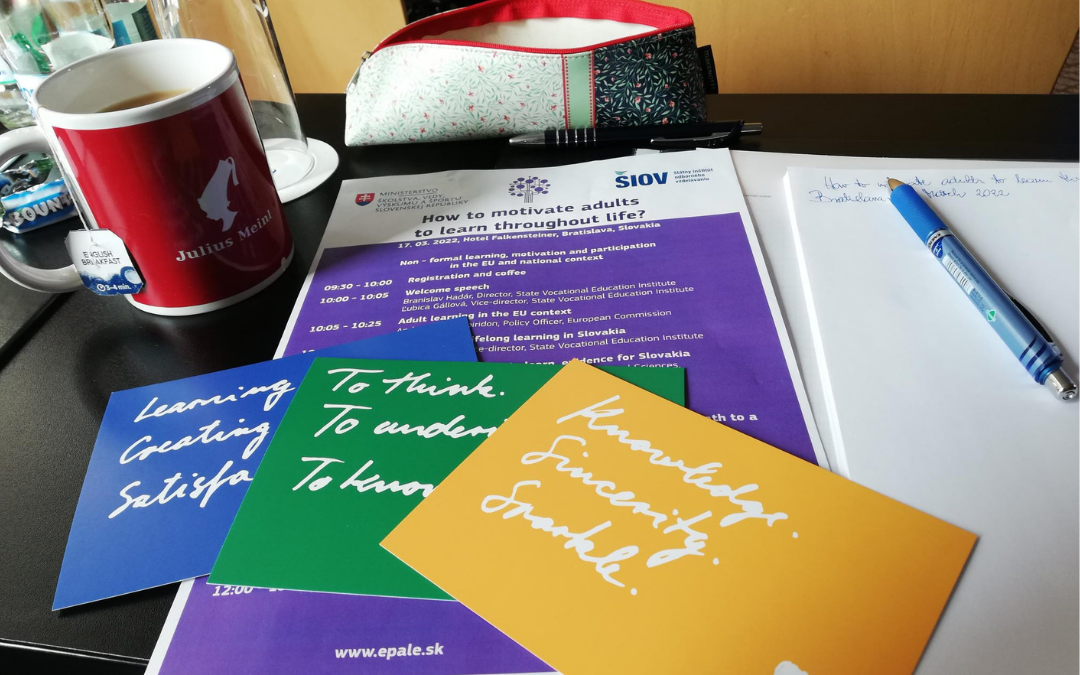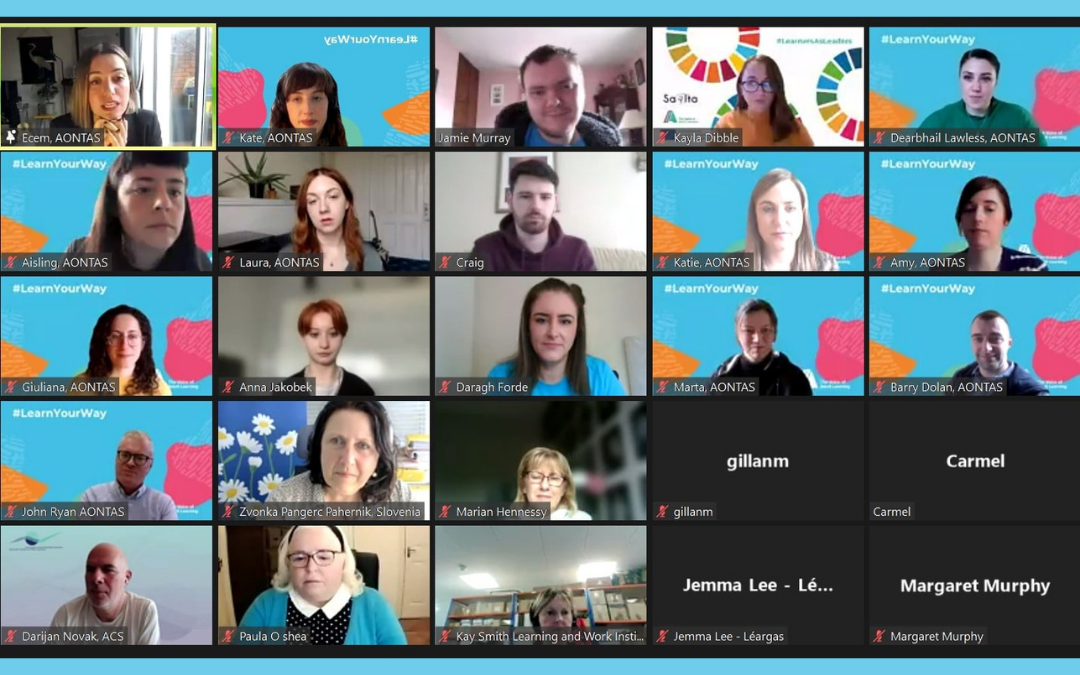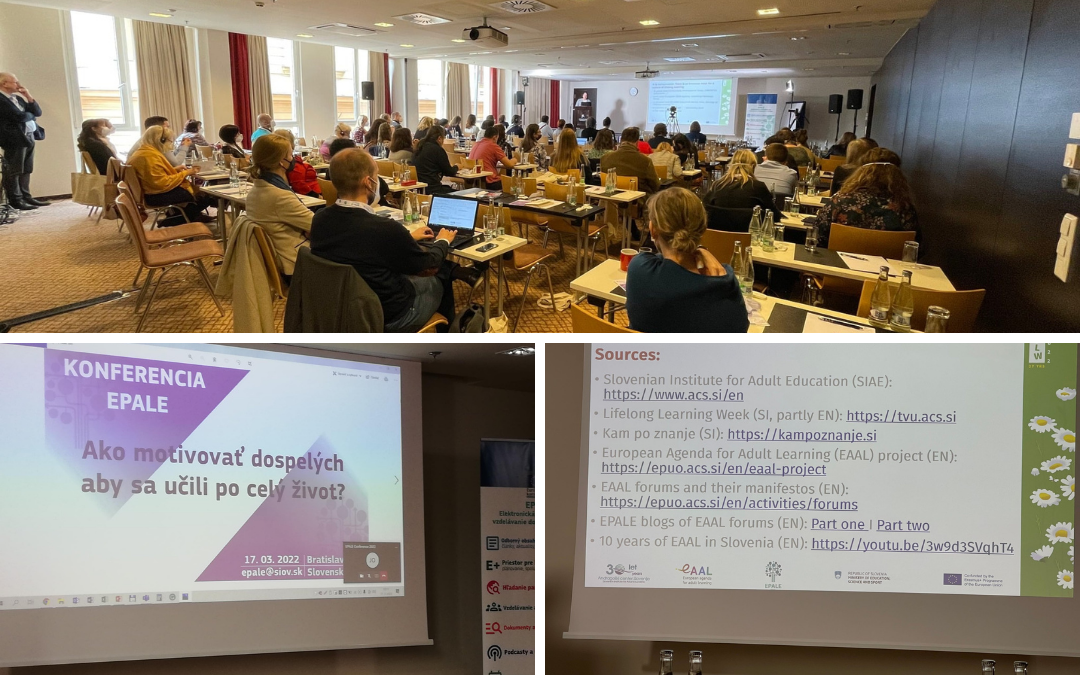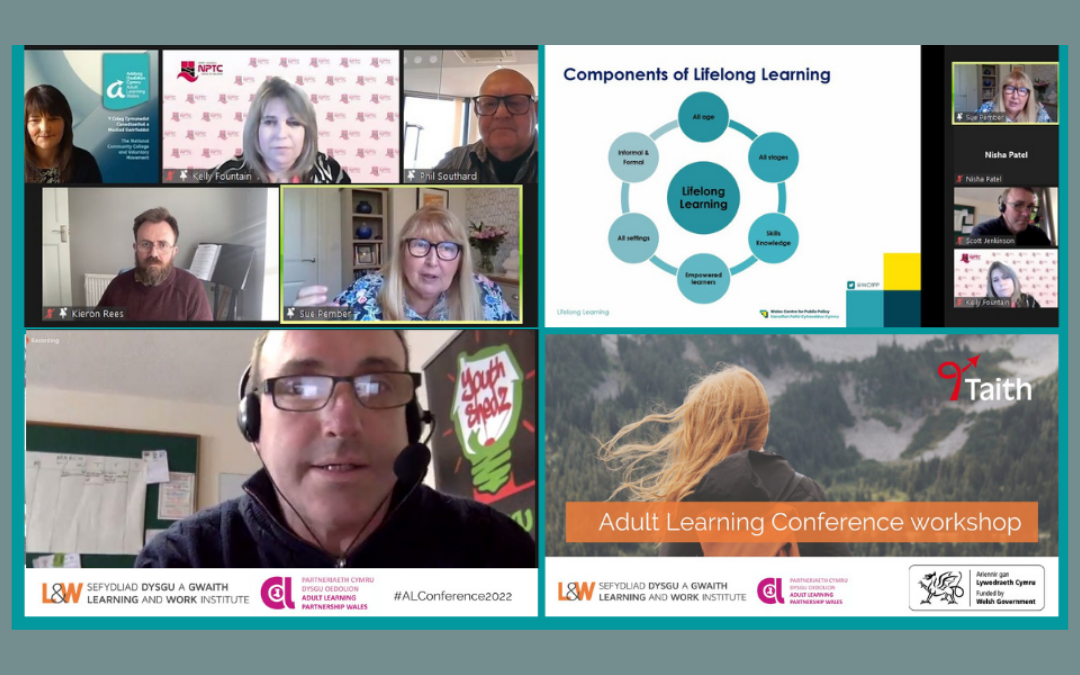Over the years, activities for awareness-raising of the importance of ALE have resulted in many good relationships with national and international like-minded people and occasional project partners. In March this year, we renewed contacts with three of them, learned a lot of new and exciting information and shared our experiences and ideas.
The Irish celebrated their 16th Adult Learners’ Festival in early March
The Festival, coordinated by AONTAS all these years, has promoted ‘learning in one’s own way’ with the slogan Learn your way. They drew attention to the numerous opportunities available to adults in local communities that are especially valuable in a post-COVID-19 period when we all want new opportunities.
Among the festival events at the national level, the meeting of participants from the Learners as Leaders programme stood out (9 March online). Namely, AONTAS carefully collects participants’ opinions and includes them in its advocacy work. The experiences of their exemplary learners are always inspiring. They testify to overcoming severe challenges, show personal as well as broader learning impacts and invite people to make their dreams come true – regardless of their level of education, social or employment status, sexual orientation, religion, ethnicity and other definitions. However, some participants think and act more broadly and represent the voice of learners in decision-making processes, designing the educational offer and research.
AONTAS helps learners develop speaking skills for the abovementioned roles and trains them to perform in person and on social networks. In addition, they entrust them with the annual organisation of the Learner Forum. Above all, together with ALE providers, they offer learners a safe environment for learning, socialising, expressing their needs and views, as well as acting.
Among others, immigrant Ana, who represents the voice of learners on the AONTAS Council, and Craig, who recently became president of the Cope Foundation’s Ability@Work programme, shared their experiences with us. The programme is run entirely by learners with the intent to change perceptions about people with various disabilities and help them enter the labour market.
In the chat room, I shared my enthusiasm for individual speakers. However, I also expressed the desire to learn from the Irish experience how to involve participants more in events and decision-making processes.
How to motivate adults to learn throughout life?
The conference with the abovementioned title took place in Bratislava on 17 March and marked the end of more than three years of work of the National Support Service for EPALE in Slovakia. The first part of the programme focused on non-formal ALE, motivation, and inclusion of adults in lifelong learning at the EU and the country level. The Slovaks have prepared a strategy for the period 2021–2030 to increase their otherwise meagre participation. However, the Lifelong Learning Action Plan 2021–2024 was being adopted exactly at that time. Both address formal, non-formal and informal learning as well as education and training for work and other purposes in a balanced manner. Working groups for lifelong learning and guidance activities have been set up at the competent ministry. They are planning pilot projects in the field of guidance, quality development in ALE and the enforcement of individual learning accounts. Lubica Gallova, a representative of the State Vocational Education Institute – the holder of EPALE and the Slovak EAAL project – reported on all of the abovementioned topics.
In my contribution about awareness-raising, outreach and motivation, all of which contribute to the establishment of a culture of lifelong learning, I presented ALE in Slovenia, the role of the SIAE and some of our activities in these areas. Diana Spiridon from the EC was also among the speakers, and she presented current approaches and documents at the EU level. She also mentioned NEAAL, which was prepared during Slovenia’s presidency of the EU Council in the second half of 2021.
In the second part of the programme, the speakers presented inspiring companies (Social Innovators and AjtyvIT), the concept of UNESCO learning cities and the city that is a candidate for this title – Trnava. Representatives of the Third Age University and the Central Slovak Gallery presented examples of excellent practice. Monika Drinkova from NSS EPALE ended her contribution with an invitation to listen to their exciting EPALE podcast. They connected and enlightened during the COVID-19 era, and they are hopeful that their role will stay important also in the future.
The Welsh are creating new avenues of cooperation in ALE
Their conference on ALE, held online on 31 March, was entitled Building a Second Chance Nation. In his persuasive speech, their Minister of Education and Welsh Language, Jeremy Miles, emphasised that this slogan (and Welsh adult education policy) builds on the belief that it is never too late to learn. Thus, the right to lifelong learning has been incorporated into legislation, and a broad-based ALE working group has been set up at the ministry.
They also designed an international mobility programme for educators and learners and named it Taith (Journey). It will fill the gap created by Brexit, as they are no longer included in the Erasmus+ programme. The event organiser, Learning and Work Institute Wales, invited me to present our challenges in ALE in a later workshop on Taith and some examples of activities that could provide networking opportunities. So we can hope for Welsh mobility and partnership initiatives shortly.
A student representative Scott Jenkinson was also among the speakers. I met him in 2019 when he impressed us as member of the Welsh delegation that came to Slovenia on a study visit. His life path has brought him to the margins of society and (through learning) back to quality relationships and activities. This time, he joined us online and affirmed that everyone deserves a second chance – especially in education.
Zvonka Pangerc Pahernik, MSc (zvonka.pangerc@acs.si), SIAE




